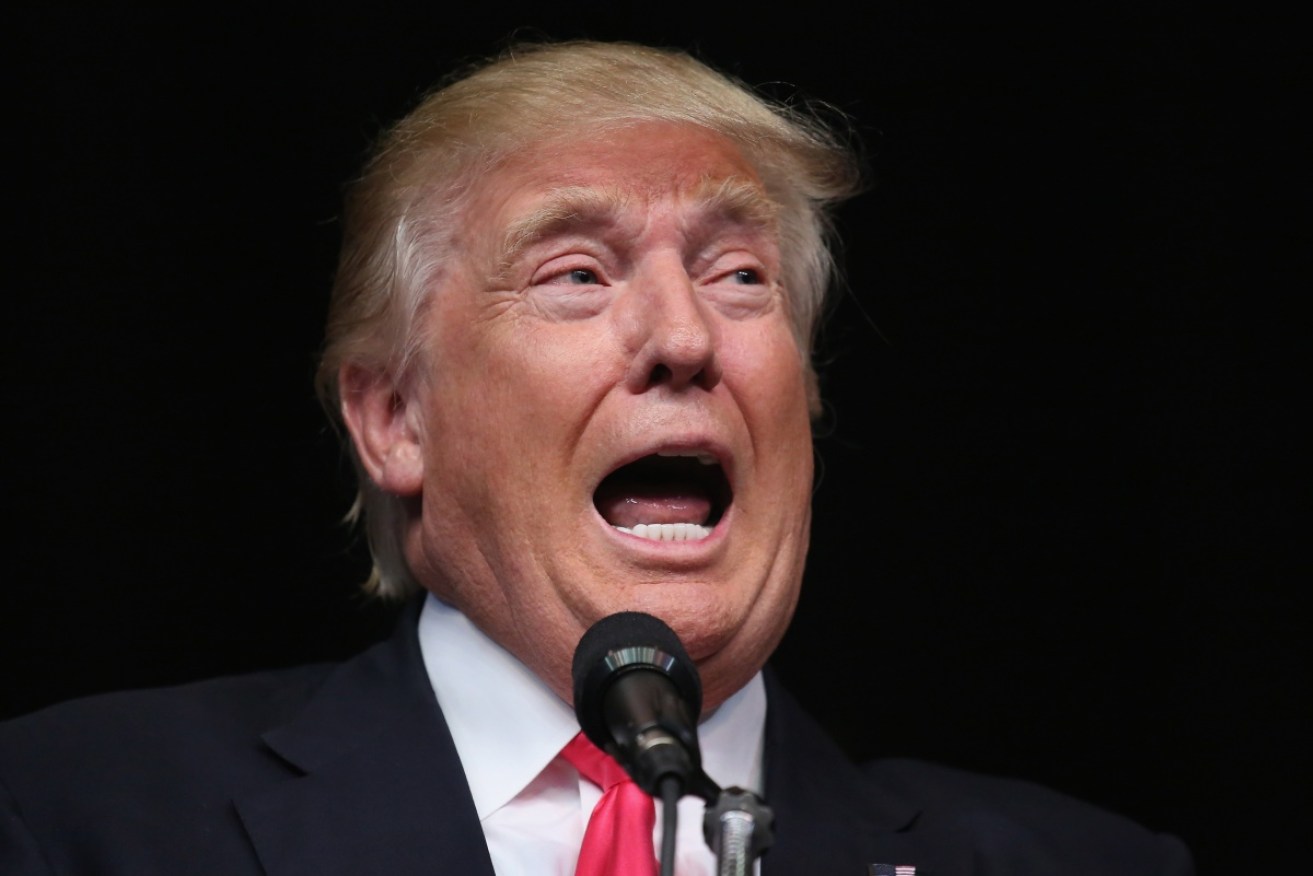One possible bright spot in a ‘Trumpageddon’


Donald Trump's presidential campaign collapsed in full view of the world. Photo: Getty
ANALYSIS
During the US presidential campaign the saying ‘hope for the best, plan for the worst’ really becomes ‘hope for the bad, but plan for Trumpageddon’.
Hillary Clinton, who accepted the Democratic presidential nomination on Thursday, is seen by her detractors as ‘the bad’ because she’s perceived to be a protector of the corporations and big banks that have trashed the interests of middle and lower-income America in the past couple of decades.
Critics see her influence on the US economy and foreign policy as ‘more of the same’ – though it has to be said that on current trajectories, more of the same would include a slow but real economic recovery.
Trump’s economic idiocy

Hillary Clinton: attacked for links to big banks. Photo: Getty
Mr Trump is meanwhile offering an illogical and destructive economic plan. But as with Britain’s Brexit voters, Trump’s followers seem to be saying “we want economic growth, but not the way it’s being delivered”.
Well they certainly wouldn’t get growth. Former Republican advisor and now chief economist at research firm Moody’s Analytics, Mark Zandi, has released modelling showing what a disaster it would be.
His analysis shows that if Trump were elected and followed through with his pledge of a 45 per cent tariff on Chinese goods and a 35 per cent tariff on Mexican goods, as well as strict immigration controls, the economy would slump.
Consumer prices would shoot up 3 per cent, a two-year recession would ensue, millions would lose their jobs and within a decade the economy would be 7 per cent or $US1.4 trillion smaller compared with pre-Trump projections.
America’s already suffering ‘working poor’ and many other Trump supporters would quickly realise they’d been had.
The silver lining

Even Democrats have protested against Hillary Clinton. Photo: Getty
Where, then, to look for hope if Trump does win the presidential election in November?
Well it’s slim pickings, but the first place to look is among the US elites that Trump supporters want to chase into the sea – all those bankers, corporate bosses and politicians.
Trump could not survive politically without the co-operation of the bosses and bankers, nor the ‘corrupt’ media who so often work in their favour.
Big capital is good, when pushed to extremes, at organising capital strikes and funding propaganda campaigns against the government threatening to challenge them.
The clearest example of that in recent years was the ‘war rooms’ set up by Australia’s big miners to fight Kevin Rudd’s resource super profits tax in 2010. They won, remember.
Secondly, to the extent that Trump was able to pursue his intended trade war and protectionism, he would not get an easy run from China, the EU, Japan and other large economies.
Nothing focuses a trade negotiator’s mind more that looming economic collapse, and Trumpageddon would accelerate bilateral agreements between other nations of the trading world.
China, which for so long was lending money to the US simply in order for Americans to buy Chinese goods, would have to move even more quickly to boost domestic consumption.
That’s a tall order, but China’s blend of market capitalism and authoritarian communism makes this more possible than in liberal democracies.
Trumped downunder

China’s shift to domestic consumption would have to accelerate. Photo: Getty
So where would Australia fit in?
A trade war between the US and China would force Australia to orient its trade and investment even further towards the Asia region.
We already have an FTA with China, and though that agreement leans towards making China ‘free’ to get what it wants from us – resources – accelerated cooperation between non-US trade blocs would likely put a floor under those exports.
It’s worth remembering that in recent years the EU, not the US, has been China’s biggest export market.
Also, as noted previously, Asian currencies have tended to move in similar directions in relation to the US dollar – another factor that would encourage trade the Asia region.
There is no doubt a Trump victory would shift power and trade relationships around the world, and bring a degree of chaos to asset and currency markets.
But as with the last 15 years, Australia would disproportionately benefit from being a open, free-market economy whose fortune is tied to the growth of the semi-centrally-planned economy of China.
It would not take America’s disaffected voters long to realise that that’s a much better place to be than in an isolationist ‘land of the free’.








